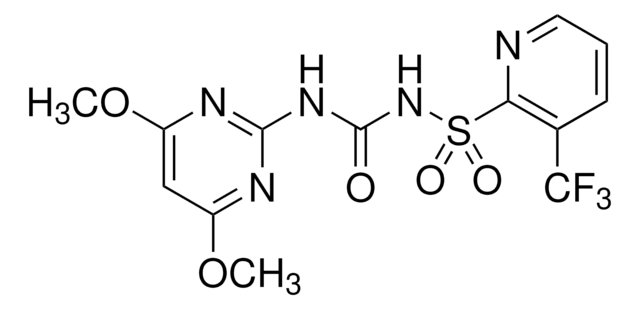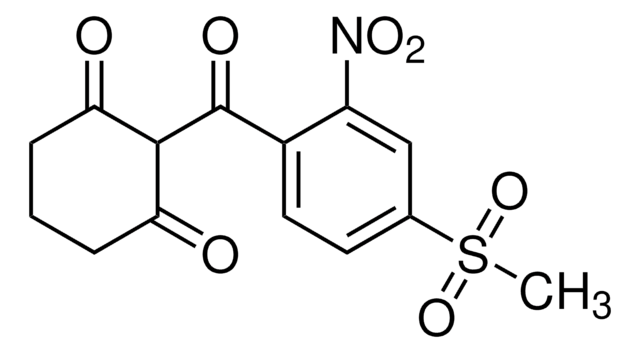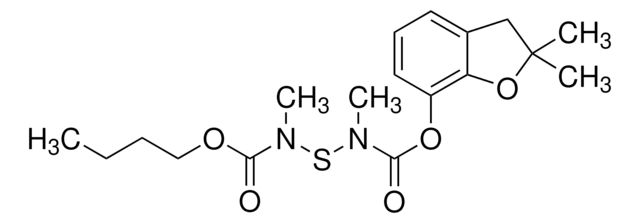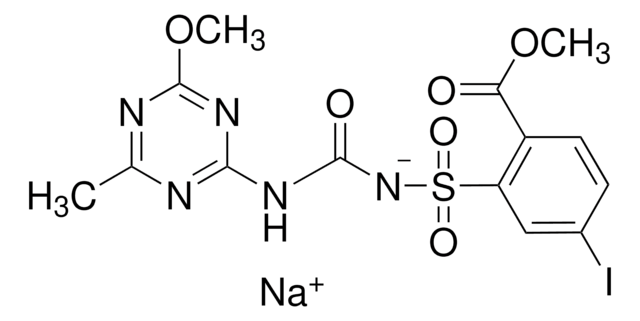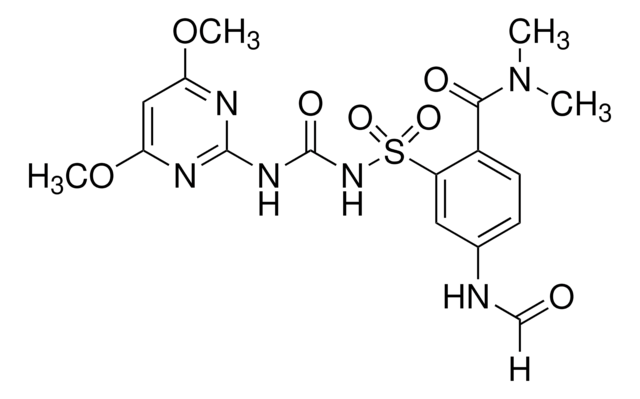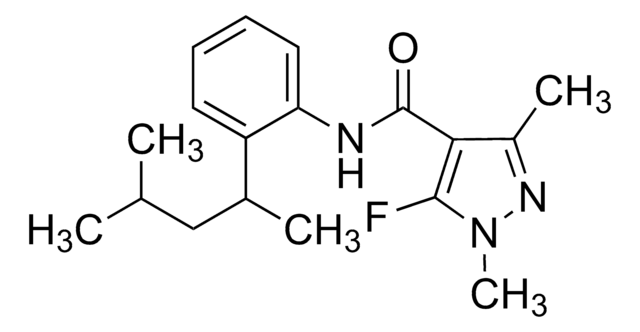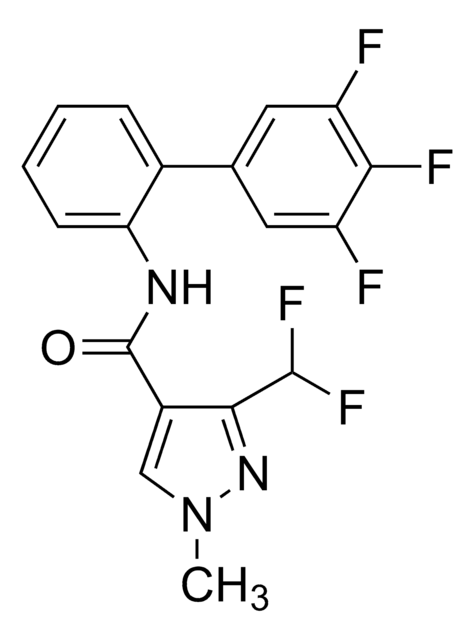33977
Foramsulfuron
PESTANAL®, analytical standard
Synonym(s):
2-[3-(4,6-Dimethoxy-2-pyrimidinyl)ureidosulfonyl]-4-(formamido)-N,N-dimethylbenzamide
About This Item
Recommended Products
grade
analytical standard
Quality Level
product line
PESTANAL®
shelf life
limited shelf life, expiry date on the label
technique(s)
HPLC: suitable
gas chromatography (GC): suitable
application(s)
agriculture
environmental
format
neat
SMILES string
[H]C(=O)Nc1ccc(C(=O)N(C)C)c(c1)S(=O)(=O)NC(=O)Nc2nc(OC)cc(OC)n2
InChI
1S/C17H20N6O7S/c1-23(2)15(25)11-6-5-10(18-9-24)7-12(11)31(27,28)22-17(26)21-16-19-13(29-3)8-14(20-16)30-4/h5-9H,1-4H3,(H,18,24)(H2,19,20,21,22,26)
InChI key
PXDNXJSDGQBLKS-UHFFFAOYSA-N
Looking for similar products? Visit Product Comparison Guide
General description
Application
Legal Information
Signal Word
Warning
Hazard Statements
Precautionary Statements
Hazard Classifications
Aquatic Acute 1 - Aquatic Chronic 1
Storage Class Code
11 - Combustible Solids
WGK
WGK 1
Flash Point(F)
Not applicable
Flash Point(C)
Not applicable
Personal Protective Equipment
Regulatory Listings
Regulatory Listings are mainly provided for chemical products. Only limited information can be provided here for non-chemical products. No entry means none of the components are listed. It is the user’s obligation to ensure the safe and legal use of the product.
JAN Code
33977-VAR-R:
33977-100MG-R:
33977-BULK-R:
Choose from one of the most recent versions:
Already Own This Product?
Find documentation for the products that you have recently purchased in the Document Library.
Our team of scientists has experience in all areas of research including Life Science, Material Science, Chemical Synthesis, Chromatography, Analytical and many others.
Contact Technical Service
